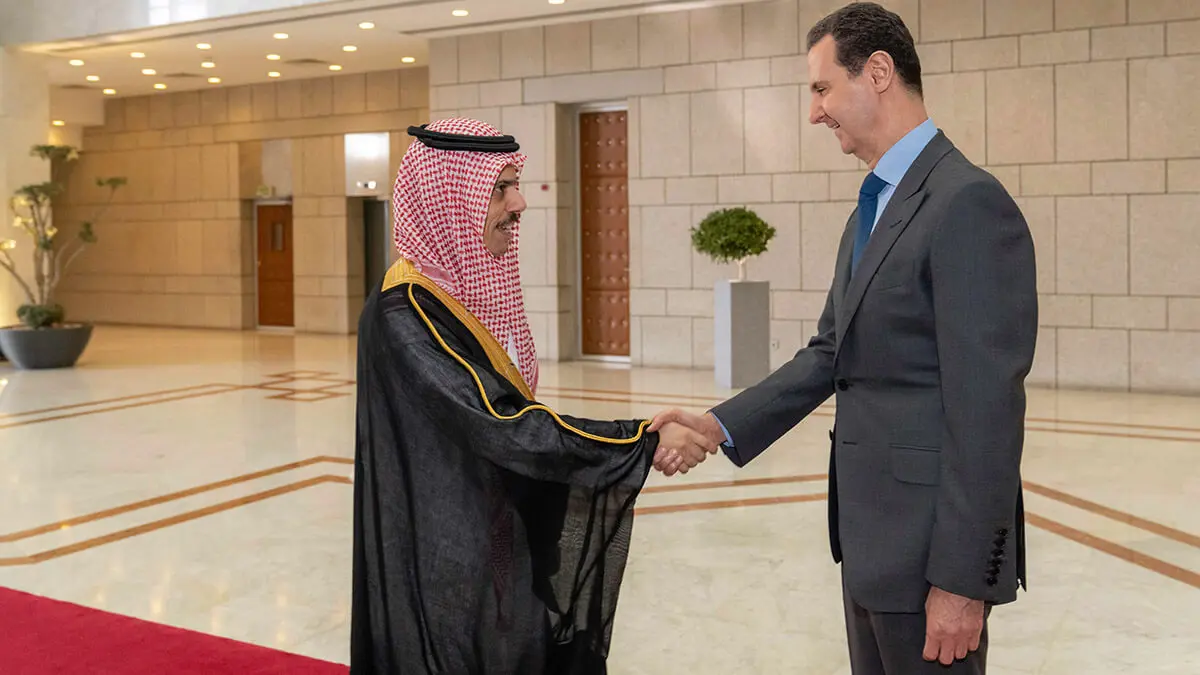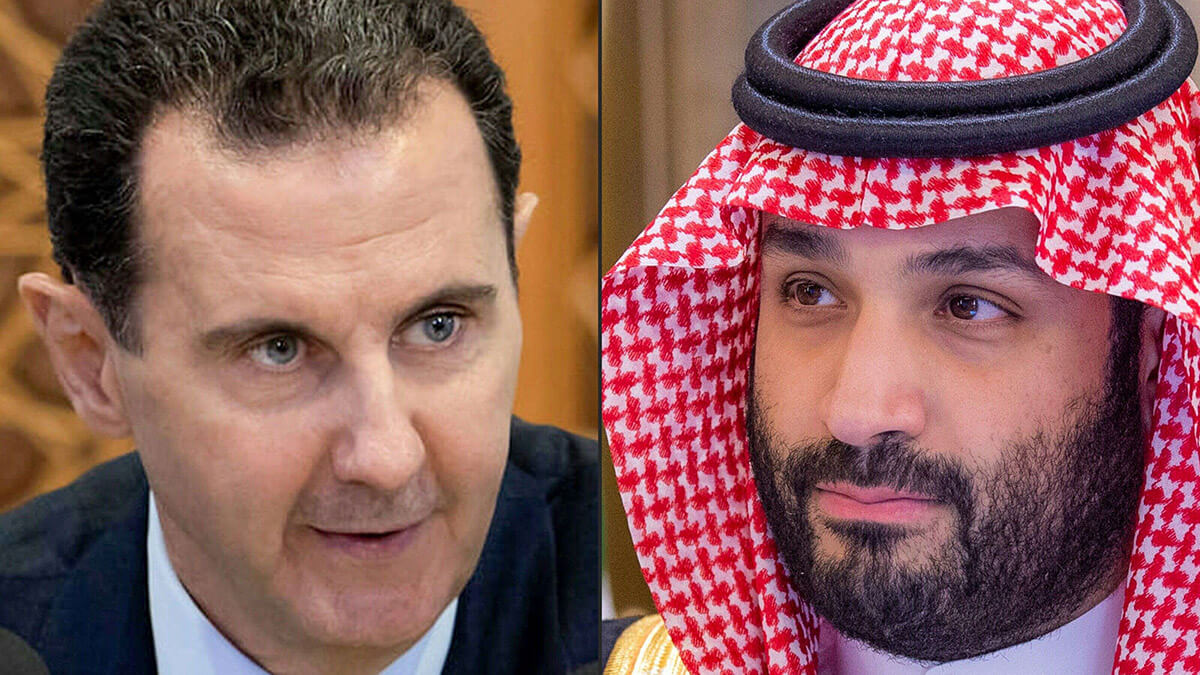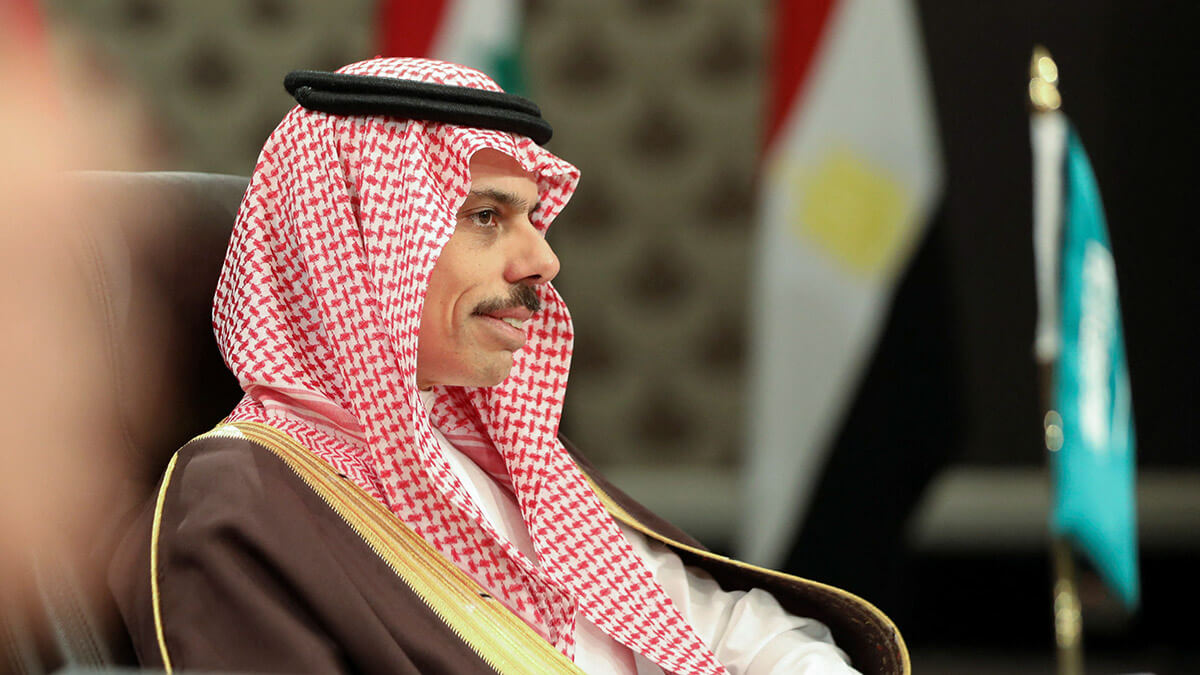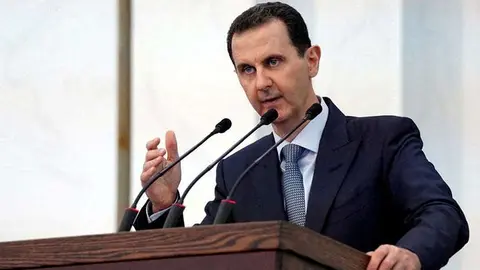Syria and Saudi Arabia announce reopening of their diplomatic representations

It was the last step towards the normalisation of diplomatic relations between Riyadh and Damascus. Two days after Syria was accepted into the Arab League, the foreign ministries of the two countries have announced that they will reopen their respective diplomatic delegations. The announcement borders on historic: Saudi Arabia is ending hostilities with Bashar al-Assad's country after more than 11 years and 6 months of diplomatic rupture.
"In accordance with the principles of the UN Charter and the Arab League, as well as international conventions and norms, the Kingdom of Saudi Arabia has decided to resume the work of its diplomatic mission in the Syrian Arab Republic," the Saudi Foreign Ministry posted on its Twitter account. The Syrian Foreign Ministry also said the same thing, arguing that "Syria believes in strengthening bilateral relations between Arab countries in the interests of joint action".
المملكة العربية السعودية تستأنف عمل بعثتها الدبلوماسية في الجمهورية العربية السورية pic.twitter.com/uBtuuDxm3f
— وزارة الخارجية 🇸🇦 (@KSAMOFA) May 9, 2023
It is this concept of 'regional cooperation' that has motivated the leadership of Saudi Crown Prince Mohammed bin Salman to resume ties with Arab countries that were broken until now. He did so last March with Iran, the main regional adversary, and now with Bashar al-Assad's Syria after more than a decade of broken relations.
The rhetoric Riyadh has used well precedes this desire for Arab unity. In the communiqué, the Saudi foreign ministry emphasised 'the brotherly ties that bind the peoples' of Saudi Arabia and Syria and the desire to contribute to the development of the Arab region 'jointly' and to promote 'security and stability in the region'.

Diplomatic turnaround in the Middle East
Damascus was excluded by the Arab League and major regional and international players in 2011, the year in which the Arab Spring protests against the regime of Bashar al-Assad began. The bloody oppression of the popular uprising triggered a simmering civil war that still divides the country in two. The context remains the same, but the Arab boycott of Syria is now a thing of the past. The tipping point of the Syrian crisis is between two scenarios.
The first is the earthquake last February that shook the border regions of Syria and Turkey. The devastation of the terrain encouraged several Arab countries, including Saudi Arabia, to provide humanitarian and rescue aid to the Syrian area. Riyadh, which has supported the rebels since the beginning of the Syrian civil war, has radically changed its position.
The second reason for the rapprochement between Arab countries comes under the umbrella of China. The objectives of the New Silk Road include pacification in the places it passes through, especially in the hitherto conflict-ridden Middle East. Chinese interference is already bearing fruit: the agreements between Iran and Saudi Arabia sealed in Beijing, the attempt to bring peace to the war in Yemen and now the rapprochement between Riyadh and Damascus.

A rapprochement with conditions
The Syrian and Saudi Foreign Ministers, Faisal al-Miqda and Faisal bin Farhan, initiated in a meeting the desire to resume diplomatic ties. Rumours, in any case, until Syria's membership of the Arab League, approved last Sunday by all its members at the initiative of Saudi Arabia.
It has been more than 11 years since the organisation suspended Damascus' membership over the 2011 protests. Bashar al-Assad has not moved an inch in his policy since then, but readmission to the Arab League comes with strings attached.
Saudi Arabia, Jordan, Lebanon, Iraq and Egypt have agreed to set up a ministerial contact committee to follow up on what has been dubbed the 'Amman Declaration' and establish the conditions for Syria's return to the Arab League. For the moment, it already writes in conditional terms the voluntary return of refugees, the departure of 'illegal' foreign forces in Syria, the fight against drug trafficking and the resumption of a Constitutional Committee to draft a new Magna Carta, a step the UN has been insisting on for years.
However, the priority measure focuses on allowing the delivery of humanitarian aid "to all those in need in Syria", that is, to rebel areas not controlled by the government. It was precisely hunger that was used as a weapon of war by Bashar al-Assad during the earthquake, when he refused to open border crossings with Turkey that would guarantee the delivery of humanitarian aid by UN trucks.
Saudi Arabia's leadership in bringing peace to the Middle East could change the policies of Bashar al-Assad's Syria once and for all. A few more mediations are needed for the war to end.









